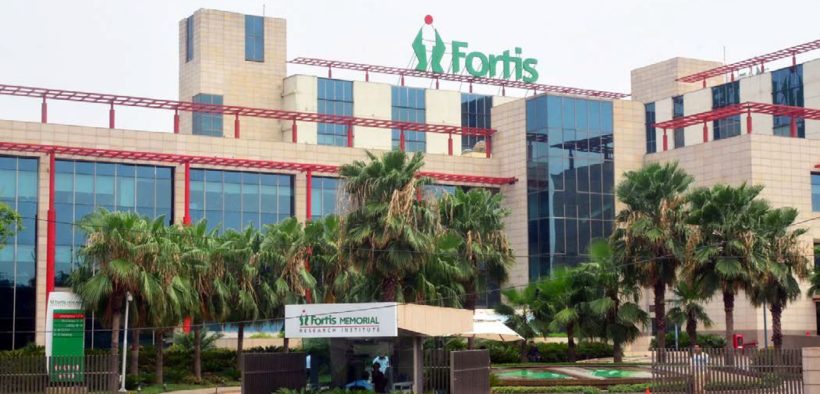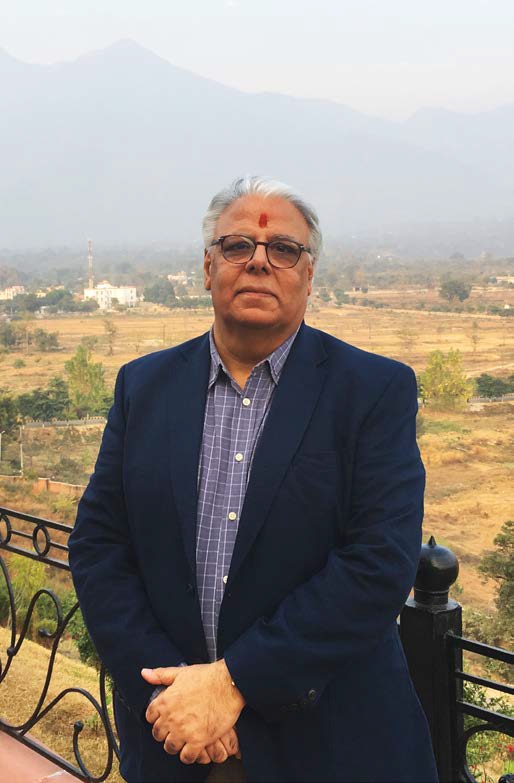Most Cancers Can Be Prevented

“THERE IS A HUGE SKILL GAP IN HEALTHCARE IN INDIA, MAINLY DUE TO HISTORICAL UNDER-INVESTMENT IN HEALTHCARE. SPENDING ON MEDICAL EDUCATION, RESEARCH AND INFRASTRUCTURE HAS TO INCREASE.”
Dr Vinod Raina, Executive Director, Fortis Memorial Research Institute, Gurgaon

A lauded figure in India’s oncology sector for over three long decades now, Dr. Vinod Raina is now serving as Executive Director at the Fortis Memorial Research Institute (FMRI) in Gurgaon. His voluminous body of work runs over with pioneering research and innumerable recognitions. A bone marrow transplant specialist with a special interest in breast cancer, lung cancer, lymphoma, acute and chronic leukemia, and stem cell transplant, Dr. Raina has performed almost 250 transplants so far. Until recently, he served as professor and head of medical oncology at the prestigious All India Institute of Medical Sciences; the institute performed the largest number of transplants in the country under his leadership. His keen interest in research led him to publish nearly 200 studies in both national and international journals. An excerpt from our interview with Dr Vinod Raina:
As per a recent projection by the Indian Council of Medical Research, India is likely to have over 17.3 lakh new cases of cancer and over 8.8 lakh deaths due to the disease by 2020. Why do you think the stats are on the rise despite awareness and several screening methods in place? Where are we lacking?
The incidence of cancer is predominantly on the rise due to an aging population, and also because of the fact that we have better facilities in place which makes screening and diagnosis easier. However, it needs to be noted that our country still lags behind in terms of investments in the domain of health infrastructure.
There is an unprecedented rise in breast cancer incidence in the country. What do you think are some major factors that lead to breast cancer?
Contrary to popular belief, there has been no unprecedented rise in the incidence of breast cancer. The current rate of incidence is 1-1.5 percent, which is much less compared to the statistics of preceding years. Part of the reason for this decline is the increasing awareness of the disease and improved diagnostic facilities available.
Compared to western countries, the incidence of breast cancer in India is on the lower side. In India, out of every 1 lakh women, 31 suffer from cancer. But in the West, it is an alarming 100. This significant difference is mostly due to the widespread use of mammography. Talking about the ideal age, there is no such thing as an ‘ideal age’ to go in for a screening here in India. However, in the West, the recommended period is between 45 and 50 years of age.
What, according to you, is the most accurate diagnostic protocol for the early detection of breast and lung cancers?
There is no ideal diagnostic protocol for any cancer. However, when it comes to breast cancer, mammography is what is used in most countries to make an early diagnosis. But it is not in use in India, and its efficiency in the reduction of mortality is controversial. Talking about lung cancer, screening CT scans of the chest in high-risk individuals has been shown to be helpful in the past, but there are no studies supporting it in India.
How advanced is our country in the field of cancer care and detection?
The delivery of cancer care in certain parts of the country is on par with global standards. However, a large part of our country woefully lacks basic healthcare facilities. We still have a long way to go.
Could you tell us more about medical oncology and why it is important?
Medical oncology is a tool for cancer diagnosis and delivery. It is one of the fastest-growing specialties and has become such an integral part of oncology that nearly 70-80% of cancer cases now require a medical oncologist.
How effective are transplanted in the treatment of cancer?
Bone marrow transplants are extremely effective in certain types of leukemias, lymphomas, and myeloma, and in the treatment of hematological disorders like thalassemia and sickle cell anemia.
You are the co-founder of the INDOX Cancer Research Network, India’s largest academic oncology network. Tell us a bit more about the institution.
Though INDOX is no longer functional due to lack of funds, the programme, which lasted seven years, did extremely well. We trained 100 young medical oncologists in the UK for 1-2 months, giving them better exposure and experience.
What are some developments you wish to see in the field of oncology?
I’d like to see new and improved teaching, training, and research in the field of oncology, and more public investment in healthcare. There is a huge skill gap in healthcare in India, mainly due to historical underinvestment in healthcare. Spending on medical education, research and infrastructure have to increase.
How does FMRI hope to make a difference in the field of oncology?
Fortis Memorial Research Institute is one of the major cancer centers in the NCR now. We offer comprehensive cancer care facilities and have published cancer registry data for the last three years. We have also started a DNB programme in medical oncology, radiation oncology, and nuclear medicine departments. We have a 20-bed chemotherapy daycare and a 14-bed transplant facility. In the last four years alone, we have been able to carry out nearly 300 bone marrow transplants. We strive to offer the best cancer care to all our patients in every way possible.
What are FMRI’s plans for the future, in terms of cancer care?
FMRI is very well equipped to deal with cancer. We are registering around 4,000 new cases a year, out of which nearly half are foreign patients. With the new ownership, we expect a large infusion of funds and rapid expansion of cancer services to cope with increasing demand and expectations
















